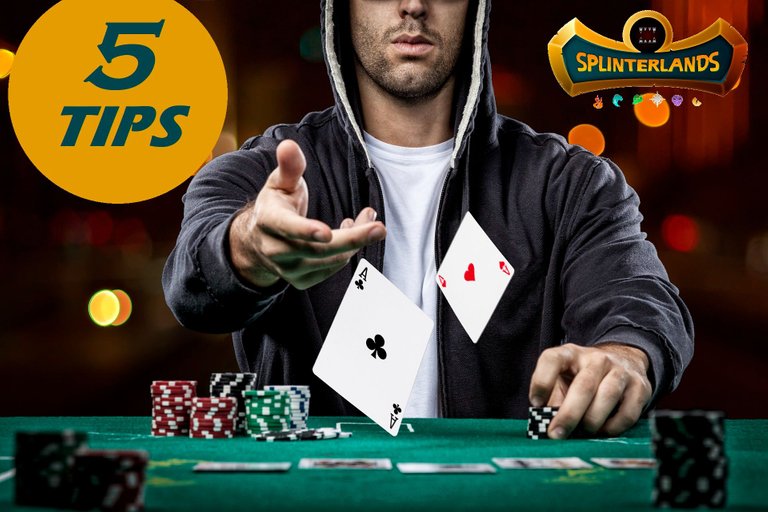
For a couple of years I was a poker semi-pro and starting my adventure with Splinterlands I realized that the habits I had been following could be useful here as well.
Thanks to them in a few months I reached games with a $50 buy-in playing No Limit Texas Holdem on four tables at once. I started on a poker Bronze ($2 buy-in) and climbed up the limits quite quickly.
I had a normal job at the time, but as soon as I got home I sat down at the poker table and dedicated several hours to the game. It was something that gave me a lot of satisfaction, and today I would like to share with you five tips I followed to become a better player. I've been applying them to Splinterlands for a few days now and they work great in that field as well.
1. Session Review
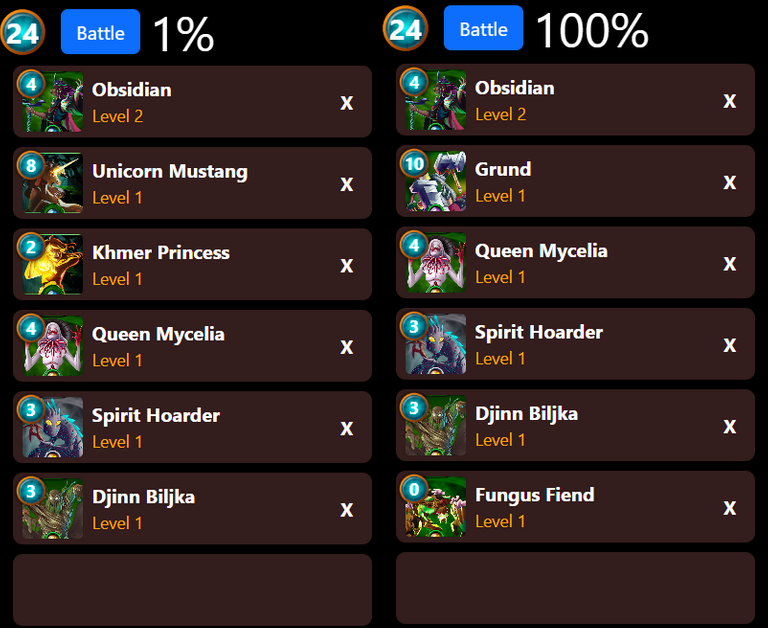
Before turning on the first table, I always started by analyzing the hands in which I lost the biggest pots in the previous session. I mainly looked for bad decisions and counted whether a given play would be profitable in a longrun.
This way, before the next session I was gaining confidence, warming up my brain and entering the tables with the right line of thinking.
I discovered a similar opportunity recently thanks to a tweet from @hawks21, who showed a screen from https://splintertools.io/
It's a great tool that allows me to check lost games and analyze how the result will change if I replace some cards or change their positions. It's surprising that moving just one card can reverse the outcome of an entire battle.
The site gives great possibilities and allows me to make better decisions, so now I'm using it before every session.
2. Learn from the pros
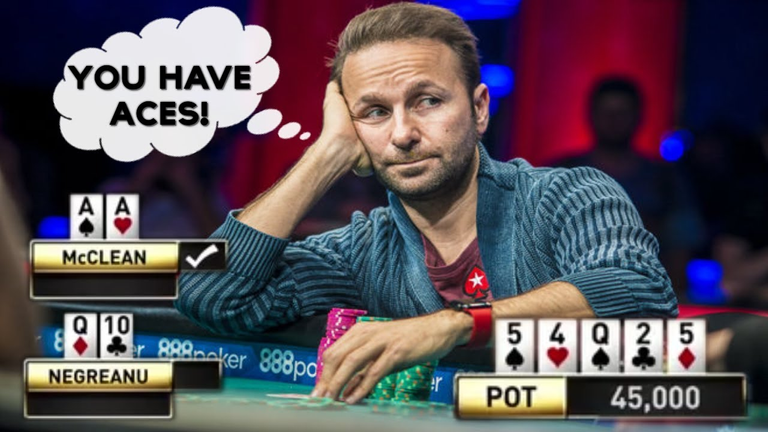
In my opinion, in all strategy games it's crucial to understand the way the best players think. We may not be able to implement their plays quickly, or maybe we never will. However, we will learn the thinking process and this can bring our game to a higher level and allows us to evaluate our plays from a completely different perspective.
As a young player I often got carried away by my ego and thought I was great even though in fact my game was getting worse. That's why I started soaking up all the content on analyzing the games of players like Phil Ivey, Durrr, Daniel Negreanu and other top pros. I also joined a community where I could watch live streams of great players explaining their thinking in real time.
I'm doing the same thing at @Splinterlands, only faster :)
Even before I started playing I watched most of the tutorials from @hawks21, @bulldog1205, @infidel1258, CryptoLamaTV or Luke Plays to Earn. I learned the rules of the game, the economics and how to think about the use of the cards. As a result, when I finally created an account I found myself in the game without too much trouble and after five sessions could already play Silver (but I don't have a deck xD).
What's more, I started to check what Summoners and monsters are played by people in the TOP5 of the leaderboard in my league. Most of them use cards out of my range, but sometimes I manage to find cool ideas that I can use in my game.
3. Think about the opponent's range
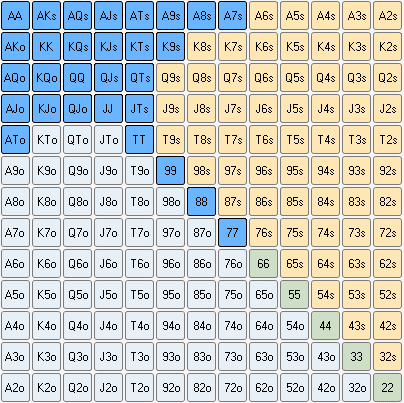
In poker, this is probably the most important rule to gain an advantage over your opponent. Knowing what position he plays we are able to quickly estimate with what hands he can raise, call or 3bet.
This allows us to adjust our game on the next streets and make better decisions. For me, this also works well in Splinterlands.
Before choosing a deck and cards, I always start with checking the mana cap, the rules and most importantly analyze the history of my opponent's last 5 games. I'm getting better and better at recognizing monsters and identifying their mana cost, so it's pretty easy for me to predict what line he can use at 15, 20 or 29 mana cap. This makes the game much easier and often allows me to choose counters that totally disable his team.
Of course, only the last 5 games are very few, his choice may have depended on the ruleset but we are still able to make some assumptions and think about the best answer.
4. Stay sharp
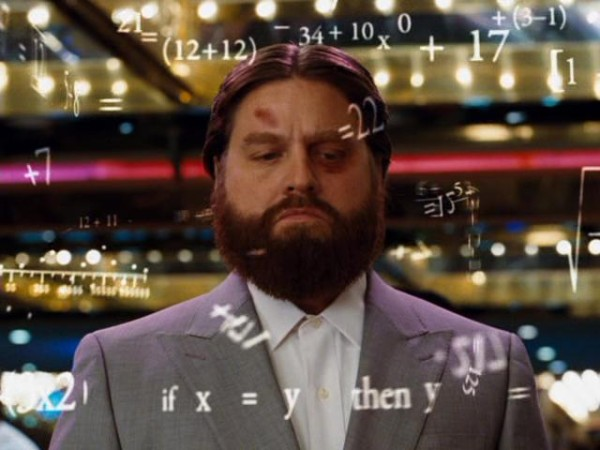
My common mistake at the table was playing when I was already tired. I couldn't judge if I was making good decisions, I was distracted by everything and didn't feel like I was playing my A-game.
I started playing with a timer and gradually increased my game time, this helped me a lot. When I caught myself losing concentration I would end the session and check how much time had passed. I started with 25 minutes to get to a place where I was easily playing four or more tables for 90 minutes without a break. As a result, the quality of my game improved significantly.
On top of that, I always played in a closed room, without a phone and with my browser turned off - just me and the poker. I also used noise-canceling headphones with music playing. In this area, everyone will choose something different, but it's interesting to note that according to research, it's a good idea to stick to certain styles of music. Apparently, this allows the brain to enter a state of flow faster and it starts working optimally.
While playing poker, I liked to listen to the trance with a strong, fast beat because it allowed me to keep up with the action on many tables. When playing Splinterland I tend to rely on calm Celtic or fantasy music.
5. What matters is a good decision, not the result
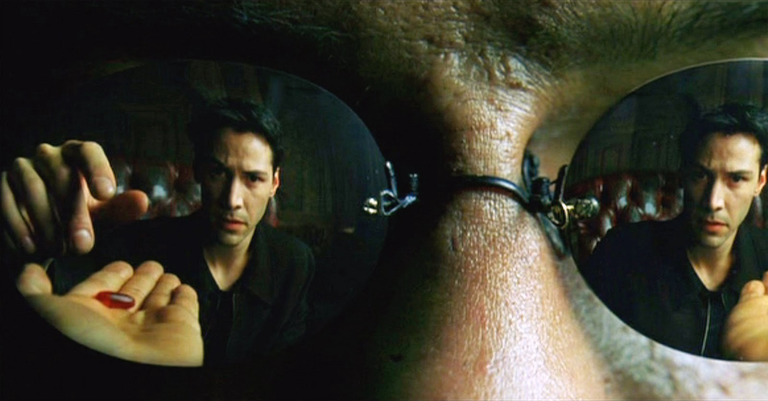
A common mistake made by poker players is to judge a game by the result of one hand. In the beginning, I did this myself and stopped 3betting kings for a while because, after all, I might fall under AA again. This is a bad attitude because the math clearly shows that 3bet is the most profitable line basically all the time.
I think the same is true in Splinterlands. Therefore, if I believe that I have read well what deck the opponent will play, I have chosen the right counters, SplinterTool shows that I have 95% for a win, and yet I am defeated this loss doesn't matter.
In the same situation I will choose that lineup again and will play according to probability. The fact that my creature missed twice and thus I lost the battle doesn't mean that the decision to choose it was wrong. It only means that my opponent was lucky and hit his 5% :)
Maybe for some of you these tips will probably be obvious, some may find them unnecessary, but still, I hope that at least a few of you reading will be able to improve your game thanks to them.
If you have other ways to work on your game then please share them in the comments. I'm at the beginning of my journey and any tips are more than welcome!
Until the next one!